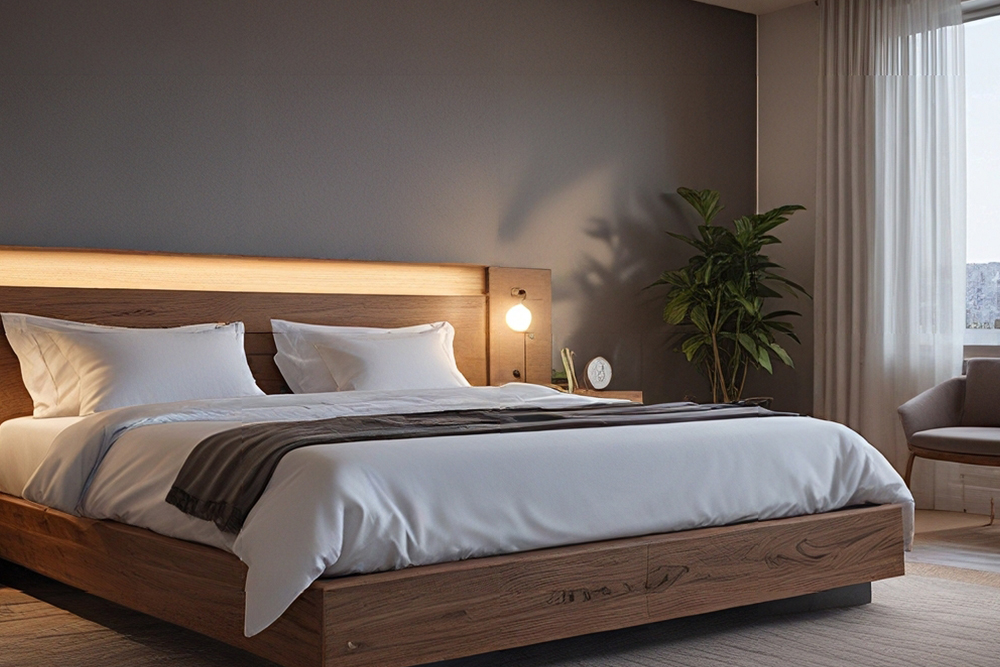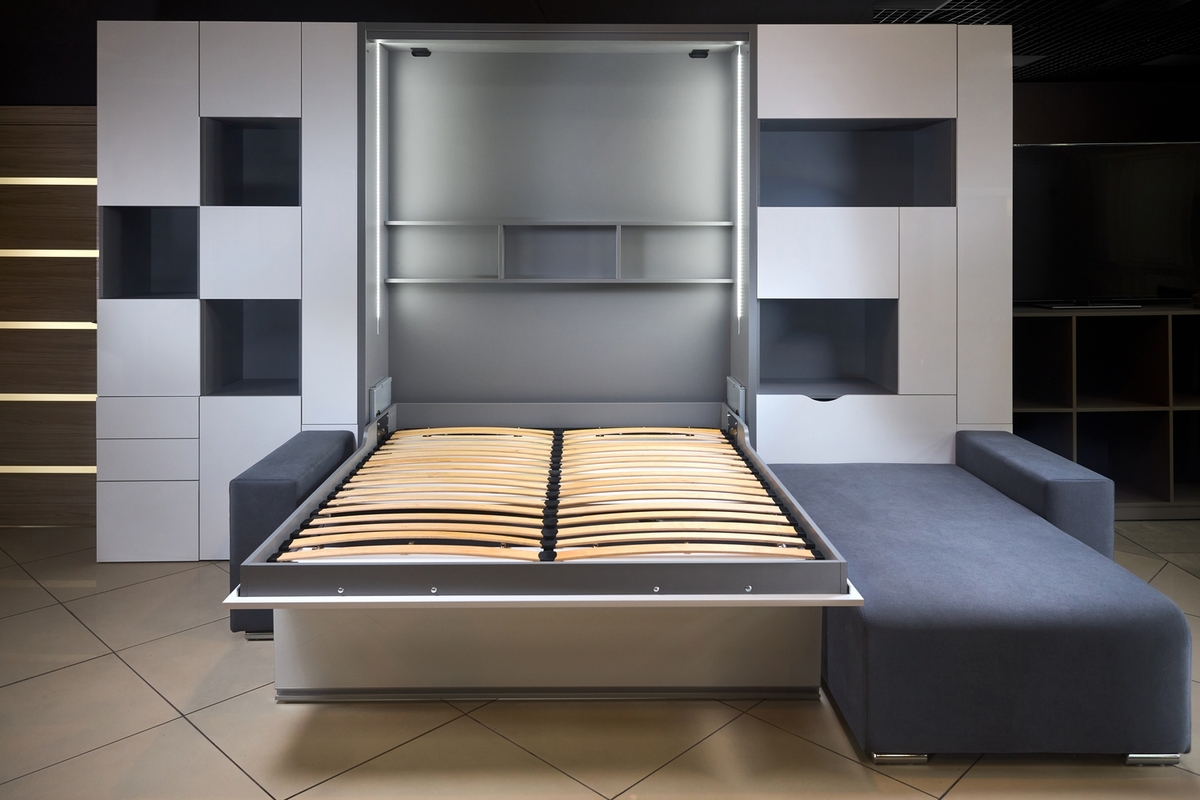Smart Beds – Benefits, Features, and Buying Tips
Quality sleep is important for one’s well-being, and choosing the right bed can help one achieve this goal. But, with numerous options available, selecting the perfect bed can be challenging. Joining the list are smart beds, which, as the name suggests, are technologically advanced solutions aimed at improving one’s sleep experience. Also known as intelligent beds or connected beds, they use modern technology to collect data about one’s sleep pattern.

Understanding smart beds
These beds are typically incorporated with advanced technological features, including functions that can analyze and monitor several aspects of a person’s sleep patterns using motors, sensors, and other smart elements. These features help the beds track sleep patterns and adjust the mattress temperature and firmness. A highly personalized sleep environment is created based on a person’s unique requirements.
Benefits of using smart beds
Most of the time, adjustable smart beds use multiple sensors that are placed across their frames. These sensors collect data, which usually includes a person’s sleep patterns, breathing rate, heart rate, sleep quality, and body movement. This information is processed and analyzed by a computer built into the bed to make real-time adjustments to the settings of the bed.
For instance, some smart beds have sensors to detect snoring activity. So, if a person starts snoring, the internal computer will process the information and immediately make adjustments to raise the bed’s head to alleviate the snoring.
Besides this, some smart beds have integrated sleep-tracking apps, which help one directly monitor one’s sleep pattern and relevant data and take measures to improve sleep quality daily.
Similarly, most smart beds are capable of automatically changing the bed’s temperature based on the body temperature of the person sleeping.
Common smart bed features
With numerous smart bed brands available on the market, features can vary widely depending on the product one selects. That said, most smart beds often share a common set of features and technologies that can improve one’s sleep experience.
1. Environment and body monitoring
Most smart beds are capable of monitoring the environment and body. This is usually done using sensors that measure the heart rate, body movement, body temperature, and breathing pattern. Along with this, the bed can also monitor the intensity of light and noise as well as the temperature inside the bedroom.
2. Sleep tracking
A smart bed with built-in sensors can track sleeping positions, sleep interruptions, bedtime, and wake-up time. Often, the inbuilt processors of the bed are programmed with algorithms that can use this information to determine the quality and quantity of sleep of the person using the bed. This way, the bed offers an objective assessment of the person’s sleep cycle. Besides this, connected applications with sleep coaching features can be used to track sleep and improve the quality of rest using the data gathered.
3. Mattress customization
Mattresses of traditional beds are usually not customizable. But, in the case of smart beds, they allow one to modify various aspects of their mattress according to one’s needs. For instance, the level of firmness of the mattress can be modified by simply using a remote or an app. Along with this, the temperature of the mattress can also be changed whenever it gets too cold or extremely hot.
4. Audio capabilities
Many smart beds often come with audio settings such as soothing sounds, white noises, alarms, mediation programs, and connections for home stereos. All of these features are designed to create a relaxed sleeping environment and improve the quality of rest.
5. Integration with other applications
Smart beds that can connect with Wi-Fi networks can be integrated with several apps. Connectivity with Google Home and Amazon Alexa is quite common since these offer voice-activated assistance. Besides this, smart beds often have features that allow them to be connected to different WiFi-enabled Internet of Things (IoT) devices, such as the thermostat, smart lights, and so on, enhancing convenience.
Tips to consider while buying a smart bed
While looking for smart beds nearby, one must consider several things to ensure one invests in the right product that meets one’s needs and preferences.
1. Set a budget
Before buying a smart bed, make sure to fix a budget. With smart bed pricing ranging from around $999 to over $40,000, it is easy to be tempted to overspend on a product with features one may not require regularly. Setting a budget beforehand can help eliminate options with higher price tags and unaffordable and unwanted features.
2. Check whether the features match up to the requirements
Since different smart bed products offer varying features, one must look at options that meet their requirements. For instance, if one is looking to improve their sleep quality with the help of data, a bed with biometric monitoring and sleep tracking will be useful. On the other hand, a smart bed offering these capabilities would be the right choice if one wants customization, automation, or app integration.
3. Consider the quality of the materials
When checking out smart beds for sale, it is important to ensure that the materials and layers used are of good quality and durable to ensure long-term use and performance.




